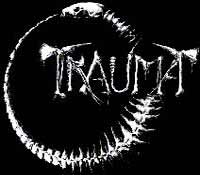Trauma are reduced by the help of Tetris
 According to the UK researchers, the effects of traumatic stress can be reduced by playing the computer puzzle game Tetris. The PLoS One journal reported that volunteers were exposed to distressing images, with some given the game to play 30 minutes later.
According to the UK researchers, the effects of traumatic stress can be reduced by playing the computer puzzle game Tetris. The PLoS One journal reported that volunteers were exposed to distressing images, with some given the game to play 30 minutes later.
The scientist said that players had fewer flashbacks, may be because it helped disrupt the laying down of memories. But on the other hand, a different specialist said that no study could match the intensity of a real-life traumatic experience.
The scientists associate the Post Traumatic Stress Disorder (PTSD) with experiences during conflict, which can affect anyone who has suffered a sudden and shocking incident.
"Flashback" is one of its main features, in which the distressing sights, sounds or smells of the incident can return in everyday life.
The principle on which the Oxford University experiment works on is that it may be possible to modify the way in which the brain forms memories in the hours after an event.
A total number of 40 volunteers were enrolled who were shown a film which included traumatic images of injuries. Following this, half of the group was given the game to play while the other half did nothing. Finally, when the number of "Flashbacks" experience were reported and recorded by each group over next few weeks, it was noted that those who played Tetris had significantly fewer experience of "flashback."
Based on these results, Dr. Emily Holmes reported that it might produce a "viable approach" to PTSD treatment. However, she also admitted that a lot needed to be done to translate the experiment into something that could be used to help real patients.
"We wanted to find a way to dampen down flashbacks - the raw sensory images of trauma that are over-represented in the memories of those with PTSD. Tetris may work by competing for the brain's resources for sensory information. We suggest it specifically interferes with the way sensory memories are laid down in the period after trauma and thus reduces the number of flashbacks that are experienced afterwards," she reported.
She also laid stress on the fact that no conclusions could be drawn on the general effects of computer gaming on memory.